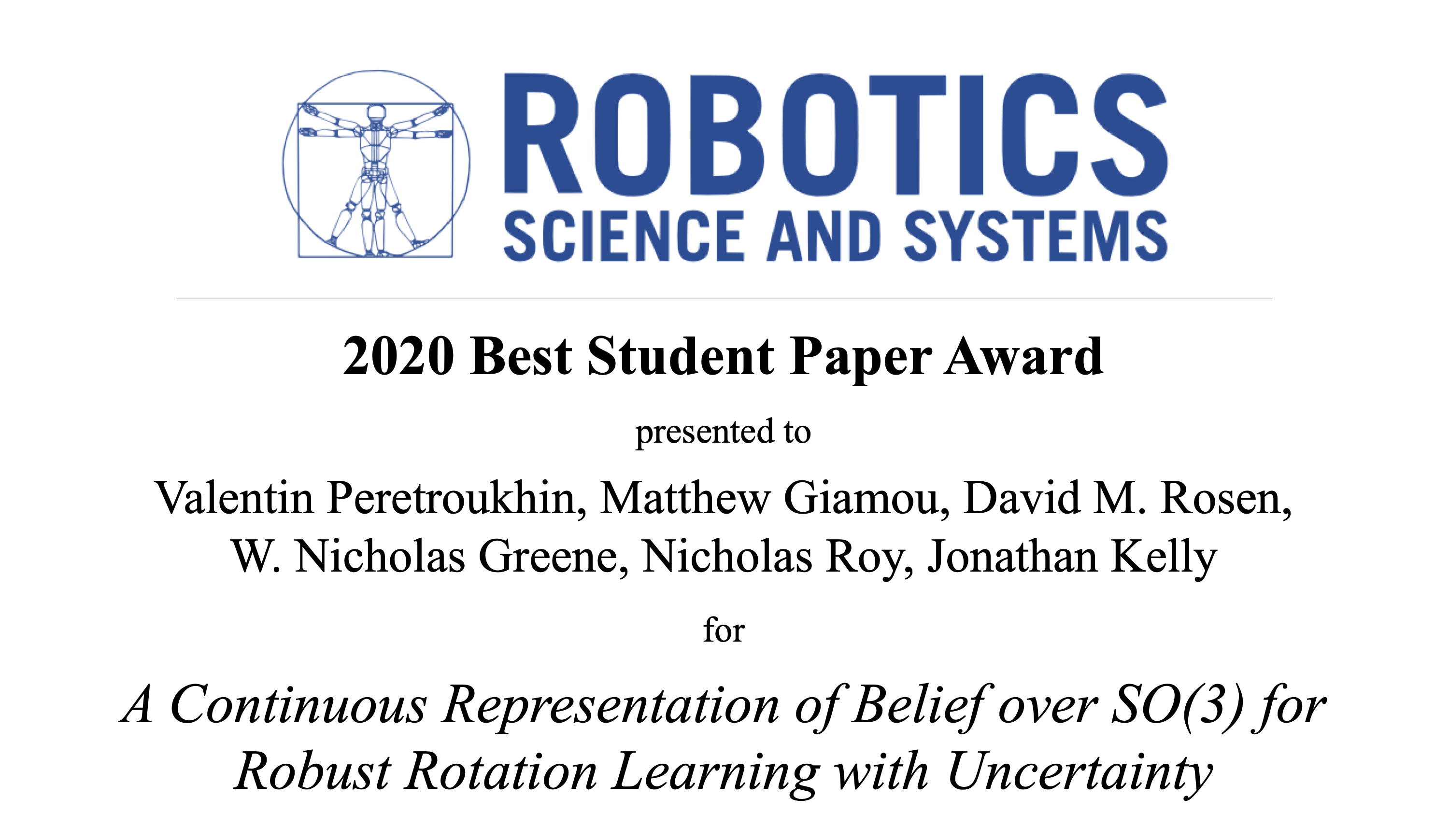
Congratulations to STARS Lab members Matt Giamou and Valentin Peretroukhin, winners of the 2020 Robotics Science and Systems (RSS) Best Student Paper Award. The paper was co-authored with their supervisor Jonathan Kelly (UTIAS), as well as colleagues from MIT and CSAIL.
A Continuous Representation of Belief over SO(3) for Deep Rotation Learning with Uncertainty, by Valentin Peretroukhin(University of Toronto), Matthew Giamou (University of Toronto), David M. Rosen (MIT Laboratory for Information and Decision Systems), W. Nicholas Greene (MIT), Nicholas Roy (MIT), Jonathan Kelly (University of Toronto)
Accurate rotation estimation is at the heart of robot perception tasks such as visual odometry and object pose estimation. Deep neural networks have provided a new way to perform these tasks, and the choice of rotation representation is an important part of network design. In this work, we present a novel symmetric matrix representation of the 3D rotation group, SO(3), with two important properties that make it particularly suitable for learned models: (1) it satisfies a smoothness property that improves convergence and generalization when regressing large rotation targets, and (2) it encodes a symmetric Bingham belief over the space of unit quaternions, permitting the training of uncertainty-aware models. We empirically validate the benefits of our formulation by training deep neural rotation regressors on two data modalities. First, we use synthetic point-cloud data to show that our representation leads to superior predictive accuracy over existing representations for arbitrary rotation targets. Second, we use image data collected onboard ground and aerial vehicles to demonstrate that our representation is amenable to an effective out-of-distribution (OOD) rejection technique that significantly improves the robustness of rotation estimates to unseen environmental effects and corrupted input images, without requiring the use of an explicit likelihood loss, stochastic sampling, or an auxiliary classifier. This capability is key for safety-critical applications where detecting novel inputs can prevent catastrophic failure of learned models.

